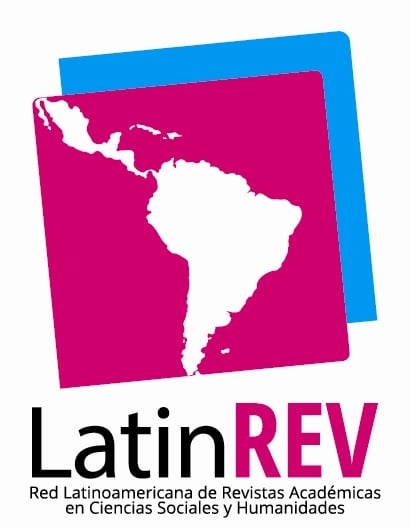Grupos de interés en las redes sociales: El caso de Hi5 y Facebook en México
Interests groups in social networks: The case of Hi5 and Facebook in Mexico
DOI:
https://doi.org/10.54167/tch.v4i3.709Palabras clave:
Redes sociales, Hi5, Facebook, grupos de interés, Internet, etnografía virtualResumen
Este artículo presenta los resultados de una investigación sobre grupos de interés en las redes sociales Hi5 y Facebook en 2008. Utilizando la etnografía virtual como metodología, se abrió un perfil en cada red social y se realizaron observaciones sistemáticas de los intereses que predominan para la formación de grupos, así como el número de miembros que los integran. Las visitas se hicieron durante dos meses, en sesiones de 60 a 90 minutos diarios. Uno de los resultados encontrados es que los grupos con mayor penetración (tres millones de usuarios) apoyan fundamentalmente causas sociales.
Abstract
This article presents the results of research on interest groups in social networks Hi5 and Facebook, in 2008. Using virtual ethnography as a methodology, a profile was created on every social network and conducted systematic observations of the interests that dominate the formation of groups as well as the number of their membership. The visits were made during two months, in sessions of 60 to 90 minutes daily. One result is that it was found that groups with greater penetration (three million users) mainly support social causes.
Keywords: Social networks, Hi5, Facebook, interest groups, Internet, virtual ethnography.
Descargas
Citas
Asociación de Internet MX. 2009. Hábitos de Usuarios de Internet en México. AMIPCI. https://www.asociaciondeinternet.mx/estudios/habitos-de-internet
Beaulieu, A. 2004. Mediating Ethnography: Objectivity and the Making of Ethnographies of the Internet. Social Epistemology 18(2-3):139–163. https://doi.org/10.1080/0269172042000249264
Boyd, D. M. & N. B. Ellison. 2007. Social network sites: Definition, history, and scholarship. Journal of Computer-Mediated Communication 13(1):210-230. https://psycnet.apa.org/doi/10.1111/j.1083-6101.2007.00393.x
Delgado, A. 2008. Normas de comportamiento en las Redes Sociales. Consumer. Eroski. https://www.consumer.es/tecnologia/internet/normas-de-comportamiento-en-las-redes-sociales.html
Zed Digital. 2008. El fenómeno de las redes sociales.
Escobar, A. 1994. Welcome to Cyberia. Notes on the Anthropology of Cyberculture. Current Anthropology 35(3):211-231. https://www.journals.uchicago.edu/doi/abs/10.1086/204266
Foremski, T. 2008. Hi5 - The Largest Social Network You Don’t Know. Sillicon Valley Watcher. https://www.siliconvalleywatcher.com/hi5---the-largest-social-network-you-dont-know/
Freire, J. 2008. Redes Sociales: ¿modelos organizativos o servicios digitales? El profesional de la información 17(6): 585-588. https://doi.org/10.3145/epi.2008.nov.01
Garton, L., C. Haythornthwaite & B. Wellman. 2006. Studying Online Social Networks. Journal of Computer-Mediated Communication 3(1). https://doi.org/10.1111/j.1083-6101.1997.tb00062.x
Hakken, D. 1999. Cyborgs@Cyberspace?: An Ethnographer Looks at the Future. Routledge. ISBN 9780415915595. https://doi.org/10.4324/9780203900550
Hine, C. 2001. Etnografía virtual. Colección Nuevas Tecnologías y Sociedad. Editorial UOC. ISBN 8497880196.
Matuk, J. 2010. ¿Cuántos y en dónde?. UNOCERO. https://www.unocero.com/entretenimiento/cuantos-y-en-donde/
Pérezbolde, G. 2009. Estudio de Twitter en México.
Phillips, L. 2008. Brussels Blasts Facebook over Hate Groups. BusinessWeek.com. Bloomberg. https://tinyurl.com/28592ta4
Ronfeldt, D. 2006. In Search of how societies work.: Tribes-The First and Forever Form. Working Paper WR-433-RPC. RAND Corporation. https://www.rand.org/pubs/working_papers/WR433.html
Roos, D. 2007. How Online Social Networks Work. HowStuffWorks.com. https://computer.howstuffworks.com/internet/social-networking/information/how-online-social-networks-work.htm
Smarty, A. 2008. Facebook Group vs Facebook Fan Page : What’s better? Search Engine Journal. https://www.searchenginejournal.com/facebook-group-vs-facebook-page/325997/
Smith, M. 2008. Why Facebook? Social Networking for fun and profits.
Watson, T. 2007. Facebook Generation. Will Social Networks Change the Nature of Philanthropy? On Philanthropy. HuffPost Media. https://www.huffpost.com/entry/facebook-generation-will_b_52581
World Internet Project. 2009. Estudio 2009 de Hábitos y percepciones de los mexicanos sobre internet y diversas tecnologías asociadas. WIP.
Publicado
Cómo citar
-
Resumen607
-
PDF355
-
HTML518

















